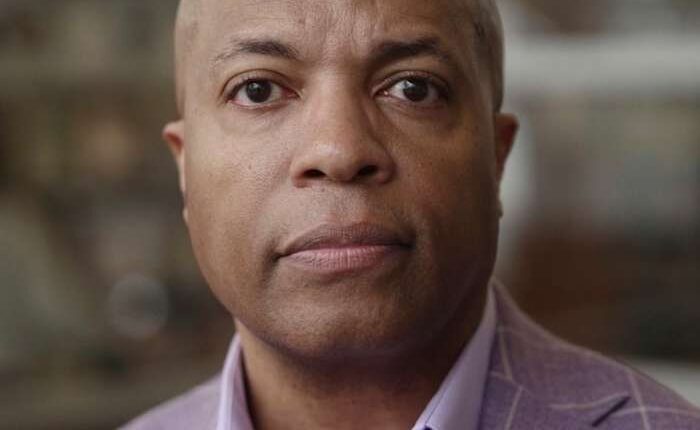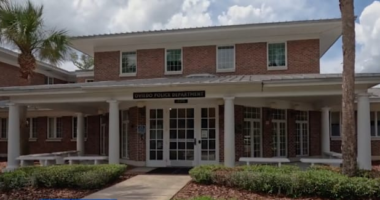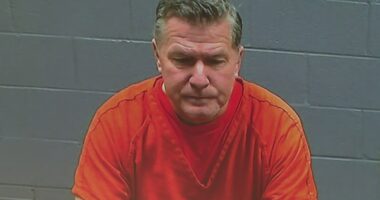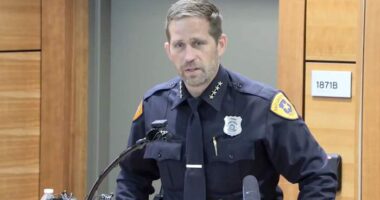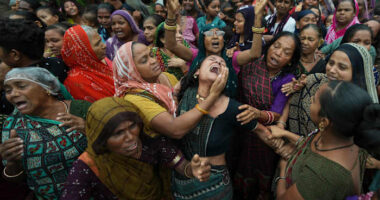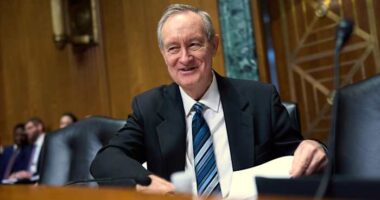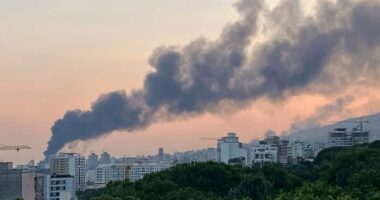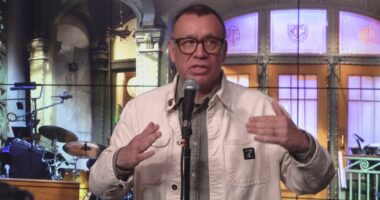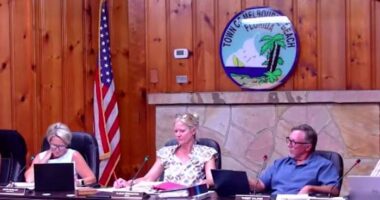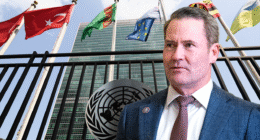
MINNEAPOLIS – Former Minneapolis Police Chief Medaria Arradondo remembers a phone call he received around midnight from a community activist. The activist urged him to watch a video circulating on social media of a white officer pinning a Black man to the ground, despite the man’s pleas of “I can’t breathe.”
The dying man was George Floyd. The officer was Derek Chauvin. And Arradondo was the city’s first Black police chief.
“It was absolutely gut-wrenching,” Arradondo, 58, recalled in an interview ahead of the fifth anniversary of Floyd’s murder.
The video contradicted what Arradondo had been told by his own staff about the incident, prompting him to anticipate changes within his department and the city. Despite this, he did not initially grasp the profound impact that Floyd’s death would have across the United States and globally.
“I served for 32 years,” he said. “But there’s no doubt May 25th, 2020, is a defining moment for me in my public service career.”
In the video, Derek Chauvin, the former officer, can be seen kneeling on George Floyd’s neck, restraining him on the street outside a store where Floyd had attempted to use a counterfeit bill. Chauvin continued to apply pressure for 9 1/2 minutes despite pleas from bystanders to cease, even after an off-duty firefighter intervened and another officer was unable to detect a pulse.
“Remnants of pain and anger”
Arradondo sat for the interview in a public library that was heavily damaged in the unrest that followed Floyd’s death. It’s on Lake Street, a major artery that saw some of the worst destruction, a street that he says still bears “remnants of the pain and anger of what occurred five years ago.”
Just down the block, there’s the empty shell of a police station that was torched during the riots. And within sight is a Target store and a Cub Foods supermarket that were looted. Storefronts remain boarded up. While some businesses were rebuilt, empty lots sit where others did not.
Arradondo still stands by his and Mayor Jacob Frey’s decision to abandon the Third Precinct and let it burn. Protesters breached the building, and police — who were spread thin — didn’t have the resources to hold it. So he ordered his officers to evacuate.
“During the most significant crisis we’ve ever experienced, arguably in the state, when it’s life or death, I’ve got to go on the side of keeping people alive and safe,” he said.
Police reform
Arradondo subsequently helped launch an overhaul of policing in the city despite a resistant police culture and a powerful officers union. He testified against Chauvin in his 2021 murder trial, a rare breach of the “blue wall” that traditionally protects officers from being held accountable for wrongdoing.
Five years on, Arradondo, who retired in 2022, said he believes law enforcement agencies nationwide have made progress on police accountability — albeit incremental progress — and that police chiefs and sheriffs now move faster to hold officers responsible for egregious misconduct.
Arradondo was promoted to chief in 2017, and his elevation was greeted with hope among local African Americans who affectionately called him “Rondo.” But his department had a reputation for being too quick to use force and many were angry about police killing young Black men in Minnesota and beyond.
Arradondo said he wishes he had made more changes to the police department before Floyd was killed.
“I would have pushed harder and sooner at trying to dismantle some of the toxic culture that allowed that indifference to exist that evening, on May 25th, 2020,” he said. “I certainly would have invested more time elevating the voices in our community that had been pleading with police departments for decades to listen to us and change.”
Making amends
Arradondo just published a book, “Chief Rondo: Securing Justice for the Murder of George Floyd,” that explores leadership, justice and race, the broader impacts of policing, and the challenges of working within a flawed system. He closes it with a letter dedicated to Floyd’s daughter, Gianna.
“I never had an opportunity to meet Gianna, but I wanted her to know that, even though I was not out there that evening, at that intersection when her father was pleading for help, that I heard him, and I was going to do everything I could to bring him justice,” he said.
He wanted to say the words that she has not heard from the four former officers who were convicted for their roles in George Floyd’s death:
“I’m sorry. I’m sorry for your father being taken from you.”
Copyright 2025 The Associated Press. All rights reserved. This material may not be published, broadcast, rewritten or redistributed without permission.
